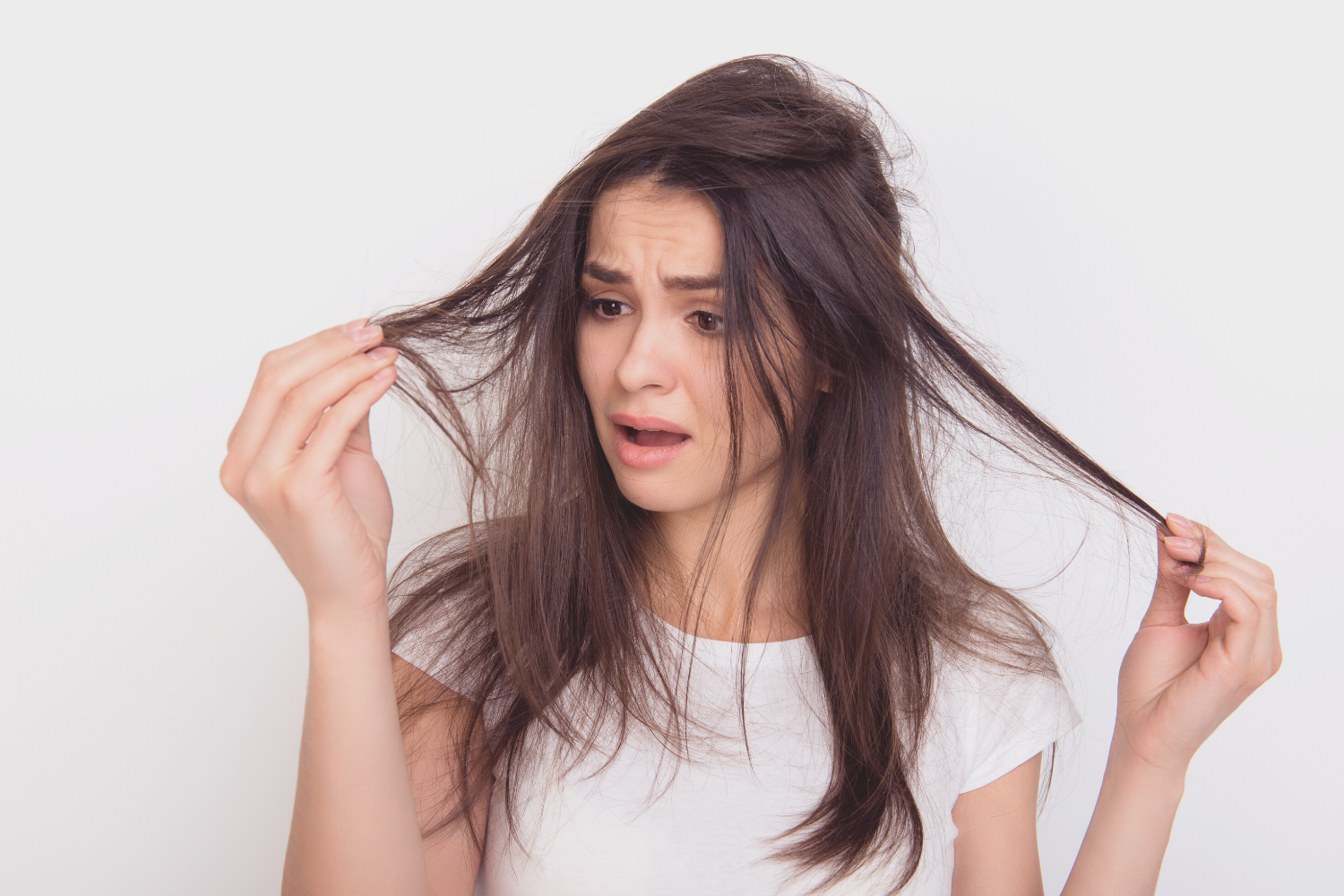Waking up in the mornings to find your hair looks like it just went through an all-night sweat session is far from pleasant. Greasy, oily hair can be difficult to style and manage and may lead to settling for a bad hair day instead. Not only is oily hair messy-looking, but it can also contribute to a greasy, uncomfortably itchy scalp. An itchy scalp can lead to dermatitis of dandruff and something we all try to avoid for a healthier scalp. With that being said, here are 5 ways to fix your greasy hair while not stripping your head from all its natural oils.
- Clean your brush. I can guess that more than half of the people reading this right now have never even thought about cleaning their hair brush, I know because I’m one of them. However, frequently cleaning your dirty brush can improve the greasy look of your strands. Your brush is often left with a buildup of styling products, hair masks and oils that can then reapply to your freshly washed hair. Remove the excess buildup by cleaning the brush with a shampoo or gently soap to ensure it is free from dirt and oils can contribute to greasy hair. Making sure you clean out all your hair shedding from your brush is also a must! Want to decrease hair thinning and shedding and stop filling your brush with strands? Try the Fyab Hair Vitality Shampoo and Conditioner perfectly formulated to combat hair thinning and shedding and reveal smoother, stronger, healthier hair.
- Wash your hair less. I know washing your hair can be tempting when you are left with a greasy mess but fighting through that stage can lead to astonishing results. I can certainly attest to this tip because I have slowly weened myself off of the constant hair washing cycle and have experience a noticeable difference in my hair’s oiliness. Washing your hair every other day when you experience greasiness can just contribute to more oil as you are often stripping your hair from its natural oils needed to promote a healthy scalp. Frequent hair washing can also lead to split ends and excess shedding. If you limit your hair washing to once or twice a week, you will notice long term results. It can be difficult dealing with the oiliness in the beginning but your hair oils do eventually balance themselves out and decreases the excess production.
- Rinse with cold water. We all love to relax in a good steamy hot shower but hot water can increase your scalps oil production and here’s how. Hot water can stimulate the sebaceous gland in the scalp, causing it to produce more and more oil. A cooler temperature rinse can help you avoid this and leads to healthier hair in the long run. A cool-water rinse also helps close your hair cuticle and further protects your strands from heat and styling tools. Cold water also works to close your pores and slow the production of sweat and oils in your skin. Plus, a cool rinse at the end of your shower can be a nice refreshing start to your day!
- Incorporate dry shampoo. This step is a quick, temporary fix to a greasy hair day. Applying some dry shampoo throughout your head can give you the appearance of fresh hair with a nice scent, while drying out the excess oils. Dry shampoo has been a savior for me ever since I started limiting my hair washing to twice a week. It can also provide your greasy, weighed-down hair with some nice volume and texture. The downside of dry shampoo is that it is a temporary fix to a long-term greasy hair problem. Excessively applying dry shampoo can also dry out your strands and leave it feeling gritty so be sure to use it sparingly to avoid unnecessary damage.
- Stop playing with it and leave it down. Head scratching and running your fingers through your hair can feel tempting but constantly touching and playing with your hair can stimulate the oil glands. It can cause the scalp oils to travel down into the strands and give you a greasier look throughout your head of hair. The same can be said for wearing your hair up. Pulling your hair back causes your scalp oils to spread the same way playing with your hair does. Styling your hair down is a simple way to greatly decrease your scalp oil production.


No responses yet